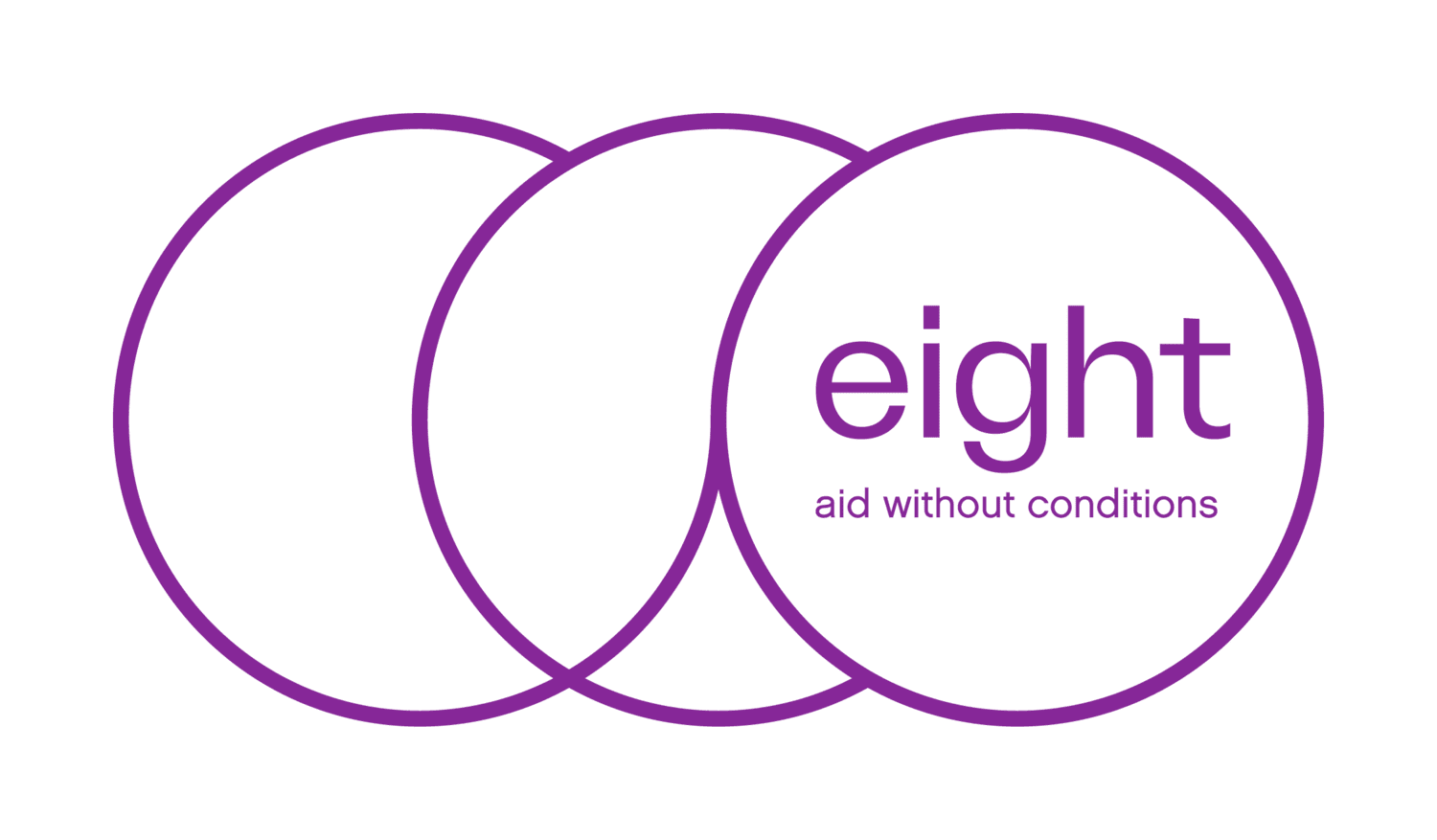Original press release can be found at: https://basicincome.org/wp-content/uploads/2022/03/220302_Pressrelease_EightBasicIncomeDRC-1.pdf
Eight’s basic income project, in collaboration with IPIS, the Belgian Development Cooperation, Fairphone, Umicore and Proximus, announces the expansion of its basic income pilot project in the Democratic Republic of Congo (DRC). From 2022 to 2026, following the first village that was onboarded in October 2021 in Lutala, the project will scale up in the same region (in the Kalima, Maniema province), providing the entire region with a basic income boost – or unconditional cash transfers – for two years.
Eight’s basic income project has a standard structure: all residents of the village receive a fixed monthly amount deposited to their individual mobile bank account.
Adults will receive 16 euros and young people under 18 receive 8 euros through their guardian. The income comes with no other conditions. In the DRC, adults will receive 20 dollars and young people under 18 will receive 10 dollars a month.
An important pillar of the project is research. Whilst the cash transfer comes without conditions, IPIS, one of the project partners, will monitor its effects, such as reducing child labour, increasing happiness levels and its influence on freedom of choice. The project will also examine the impact on education, health, entrepreneurship and collective action and compare the developments of the villages with a ‘control’ village.
Juma Kisembo, Coordinator Eight in Uganda, commented:
“Our previous projects in Uganda have already proven how big the impact of basic income is on education, health, entrepreneurship and collective action. Now that we can start with a basic income boost on a larger scale in Maniema, this will not only mean a change for that region, but also put a real equitable approach central.”
The Democratic Republic of Congo (DRC) is particularly affected by poverty, with 37% of its population identified as severely multidimensionally poor, and 77% of the population living on less than 1.90 USD per day. Even though the DRC is one of the richest countries in the world in terms of mineral wealth (in 2011 the DRC’s untapped mineral reserves were estimated to be worth 24 trillion USD), this wealth does not contribute to local development, and does not lift local artisanal and small-scale mining (ASM) communities out of poverty – for example, in Eastern Congo. In a study commissioned by Fairphone, IPIS estimated that the income of miner households with one breadwinner in artisanal 3T (tin, tantalum, tungsten) did not cover costs of basic needs in the mining areas of Itebero (North Kivu) and Nzibira (South Kivu). In the first village that was onboarded, 32.5% of the villagers work as tin miners. Most of the miners combine mining with another job (mainly farming), namely 92%. Interestingly, only a small minority of the miners possess a miner’s card, and a majority does not use protective equipment while working in the mine. The project will assess whether these working conditions change as a result of the UTC.
In 2022, Eight will also expand its project in Uganda, where the focus will be on climate change. It will investigate how an unconditional cash transfer can positively influence the effects of climate change. The basic income boost would go to people suffering from the effects of flooding caused by climate change.
More details about this will be communicated in a few months.
Read more in the baseline study here: https://ipisresearch.be/publication/unconditional-cash- transfers-in-the-drc-a-comparative-baseline-study-in-an-artisanal-mining-zone-in-maniema- province/
____________________________________
About Eight
EIGHT demonstrated in a pilot project – which ran from January 2017 to January 2019 – that it is possible to give money directly to people in poverty without relying on large institutions or large budgets. Simple cell phones, mobile money and the support of a small but committed group of entrepreneurs and effective altruists made this possible.
Study after study shows that the official support going to the South today mainly strengthens existing elites. So, there is no trickle-down effect on people in extreme poverty.
Crazy Money is the award-winning feature documentary on Eight’s pilot project in Busibi. It is available on digital: www.crazymoney.world/watchnow
More info: www.eight.world
About IPIS
The International Peace Information Service (IPIS) is an independent research institute that provides tailored information, analysis and capacity enhancement to support those actors who want to realize a vision of durable peace, sustainable development and the fulfillment of human rights.
More info: www.ipisresearch.be
For additional information and interview requests, please contact: Steven Janssens Email: steven@eight.world




















